Resources
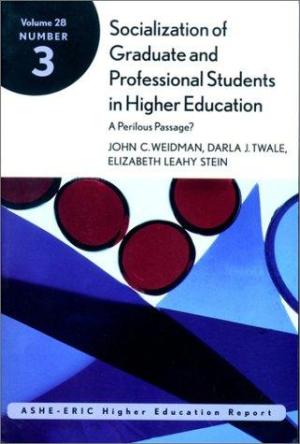
This report on the process of graduate and professional student socialization provides information that can be of use to graduate program faculty and administrators, professional associations, state legislatures, and professional licensing bodies charged with assuring clients that well qualified professional practitioners are being prepared in the nation's universities. It addresses implications of issues raised in current literature for designing more effective graduate programs. Socialization in graduate school refers to the processes through which individuals gain the knowledge, skills, and values necessary for successful entry into a professional career requiring an advanced level of specialized knowledge and skills. The first two sections, "The Professional and Socialization" and "Conceptualizing Socialization in Graduate and Professional Programs," describe the various elements of this socialization process, drawing from research on adult socialization, role acquisition, and career development. The third section, "A Framework for the Socialization of Graduate and Professional Students," presents a conceptual model of graduate and professional student socialization that assumes socialization occurs through an interactive set of stages. The fourth section, "Institutional Culture: Recurrent Themes," illustrates several changing patterns in graduate education that are exerting pressure for reform. The fifth section, "Institutional Culture and Socialization: Differences among Academic Programs," contrasts socialization processes across academic program goals, faculty expectations, and student peer culture. The final section, "Easing the Perilous Passage," discusses modifying the graduate degree program and faculty and administrator roles, increasing diversity, and offering support to students. (From the Publisher)
A junior faculty member reflects on the dilemma of that professional position, noting that its anxieties fall into two categories: "Is this all there is?" and "What if we lose it?" She examines problems with, and prohibitions against, speaking one's mind in that position, sees solutions as being institutional or individual, and examines how concerns are linked to other campus constituencies.
The "Heeding New Voices" study, a year-long series of structured interviews with new faculty and graduate students aspiring to be faculty members around the country, sought both to give voice to those who are just beginning their academic careers and to provide guidance for the senior faculty, chairs, deans, and others in higher education responsible for shaping the professoriate of the future. This booklet, drawn in part from the study's findings, includes: (1) ten principles of good practice; (2) inventories to prompt department chairs, senior colleagues, and other academic leaders to examine their individual and institutional practices; and (3) examples of concrete and innovative approaches to good practice being tried out now in a variety of institutional settings. The principles reflect the three categories of stated need from the "Heeding New Voices" interviews: improving review and tenure processes (principles 1-4), encouraging positive relations with colleagues and students (principles 5-7), and easing stresses of time and balance (principles 8-10). (Contains 13 references). (EV)
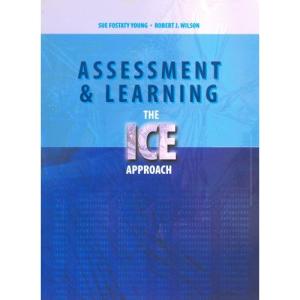
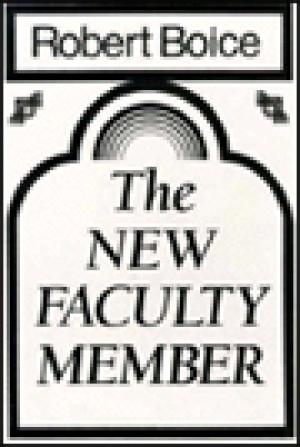
For the first time in decades, most American campuses are in the midst of hiring large groups of new faculty. As competition for the most qualified candidates increases, institutions must work harder than ever to attract and retain the best and most diverse prospects. This often requires investing considerable resources in recruitment and hiring--and makes it imperative that new hires are not lost to competitors or to unhappy or unproductive beginnings. In this book, Robert Boice offers a range of proven support strategies designed to help new faculty thrive--from campuswide programs for nurturing newcomers to projects that help them to help themselves. Boice identifies the major challenges facing most new faculty--teaching, scholarly writing, and simply fitting in as colleagues--and provides tested solutions for helping them cope. He outlines a structured mentoring program to build collegiality through social support networks. And he presents specific techniques for helping new faculty find time, fluency, and balance as writers, including advice on dealing with editorial evaluations or rejections. The author also details a variety of self-help projects, including exercise and mood management groups run largely by new faculty, as well as faculty handbooks and newsletters. And perhaps most important, he tells how to gain the crucial support of department chairs, deans, and other administrators, secure funds to get programs off the ground, and keep new programs manageable and successful. (From the Publisher)
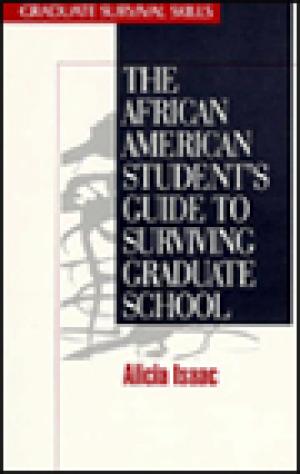
What does it take to get into and through graduate school? What special challenges, opportunities, and issues face an African American graduate student? The African American Student's Guide to Surviving Graduate School offers a practical roadmap to help African American students get the most out of their graduate school experience. The book covers a number of issues, including creating a program of study, financial aid, and the dissertation process. Author Alicia Isaac thoroughly covers the entire graduate process, offering case studies, anecdotes, words of wisdom from prominent African Americans, checklists, and self-assessment scales to provide a useful guide for students involved in or considering graduate study. (From the Publisher)
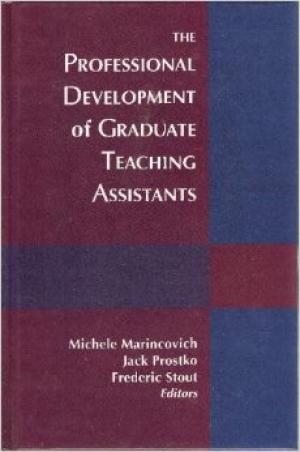
As both the need for and the expectations of teaching assistants in higher education rise, institutions must ensure that graduate TAs provide effective instruction. This comprehensive TA training handbook is an essential resource for those who prepare graduate TAs for their responsibilities in the classroom and for their overall professional development. Written by experts in the field of TA development, this book provides a clear framework for implementing and assessing an effective program. It is an ideal resource for all those who are interested in developing or improving TA training programs. (From the Publisher)
Focuses on the role of faculty members in the career of students. Anxieties expressed by deans and presidents of schools on how faculty members should be trained; How the popularity of religious studies reshaped the training of theological faculty; Capabilities of most theological faculty.
Focuses on socializing future faculty to the values of undergraduate education. Values of hiring colleges and universities; Approaches to graduate preparation; Preparation of future faculty project; Initiatives and strategic benefits. INSET: More about support programs..

This volume offers a practical compendium of advice on how to foster the career development of new and junior faculty. It is organized around three main themes: research findings concerning new and junior faculty, model programs and strategies to support faculty development, and organizational factors that affect both the success of the strategies and the experiences of new and junior faculty. Whether readers are junior faculty, senior colleagues, faculty developers, or academic administrators, all can learn how to create more supportive and stimulating environments for the newest members of their academic communities. (From the Publisher)